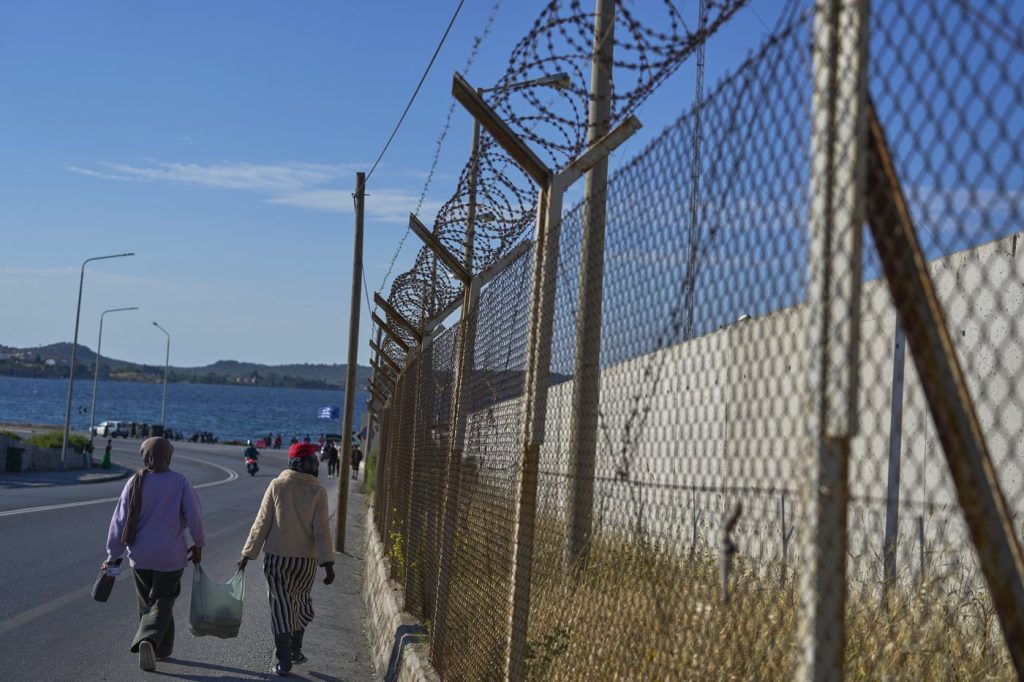LESBOS, Greece – Amena Namjoyan, escaping Iran with her husband and toddler, arrived on the rocky shores of Lesbos, an eastern Greek island, amid a massive influx of migrants that began in 2015. Alongside countless others, she faced overwhelming challenges as local fishermen and volunteers worked tirelessly to save those fleeing war and poverty. Over the past decade, the humanitarian crisis that ensued significantly impacted Europe’s migration policies and community sentiments.
Namjoyan spent several months in a crowded migrant camp, where she overcame personal struggles with illness and depression while navigating the complexities of asylum and integration. Ultimately, she returned to Lesbos after a short stay in Germany, where she now works in a restaurant serving Iranian cuisine—an effort cherished by locals. The enduring connection she feels to Greece is evident as her second child identifies as Greek, and Namjoyan expresses pride in her resilience and adaptation to life on the island.
The year 2015 saw more than 1 million migrants and refugees reach Europe, primarily arriving on Lesbos from Turkey—a distance of only 10 kilometers (6 miles). This mass migration sparked a profound humanitarian crisis, bringing together islanders and migrants in a community that momentarily embraced the newcomers. Many migrants viewed Greece as a transit point, with some seeking asylum in countries like Germany, while others faced rejection and hardships, languishing in camps or returning to their home countries.
Over time, migration policies in Greece, reflected throughout Europe, have shifted toward stricter deterrence measures. With threats of incarceration for rejected asylum seekers and reduced border crossings, the political narrative around migration has also shifted significantly. Camille Le Coz of the Migration Policy Institute notes that migration has risen to prominence on political agendas, correlating with the emergence of right-wing movements across Europe.
As local tavern owner Elpiniki Laoumi recalls, the initial response to the migration wave was rooted in compassion. She provided food and shelter to newcomers while the peak of the migration crisis saw Greece navigating both humanitarian responsibilities and the pressures of an economic crisis. The enduring struggles of refugees have heavily influenced political discussions, with reactive policies often leading to growing sentiments of anger and fear among the populace.
Currently, although illegal migration numbers have declined significantly, the focus of many European governments remains on enhancing border security. New EU initiatives, including “return” hubs for deported asylum seekers and increased surveillance, illustrate a shift toward more restrictive practices. Frontex has transformed from a small administrative body to a major border protection force equipped with drones and a sizable budget, indicating a fortified approach to immigration control.
The 2015 crisis continues to shape EU policies, with a new migration and asylum pact approved last year that aims to standardize procedures for handling refugees and migrants across the 27 member states. Margaritis Schinas, a key architect of the code, dubbed the Lesbos crisis a pivotal moment in establishing a unified response to migration issues across Europe, despite criticisms of the concessions made to anti-migration factions.
Lesbos today reflects a community grappling with the lasting impact of the migration crisis. Local residents harbor mixed feelings about the arrival of migrants as they navigate the challenging legacy left by prior tragedies. Fisherman Stratos Valamios shared his grief over lives lost during perilous voyages and expresses frustration at the persistence of such tragedies on the island.
Despite the challenges posed by national policies, community members like Efi Latsoudi work persistently to assist migrants in learning Greek and integrating socially and economically. She embodies hope for the future, emphasizing the need for solidarity and support towards newcomers in a climate that has increasingly turned cold toward immigration.











